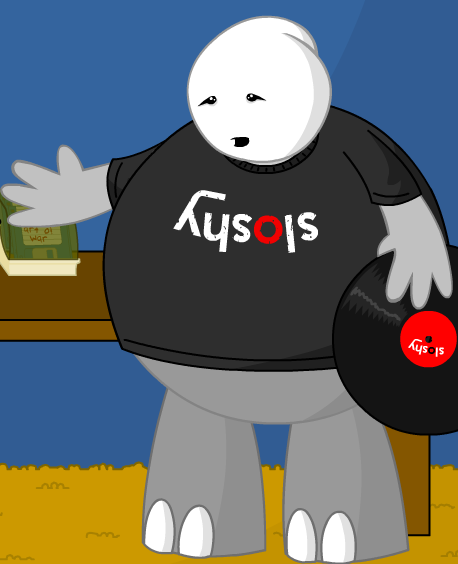Do you just pronounce it like “Travises” like we do colloquially? Or is there some way to do it.
Travissiz
There’s a linguistics professor at MIT who I once heard say in a class (an Open Courseware class… I didn’t attend MIT or anything):
“We’ll speak no more of prescriptive linguistics except to mock it.”
However you want to say it, say it. Your particular style of speech is unique and beautiful and you should keep speaking that way.
I personally would pronounce it like “Travises”. As if pluralizing it. (“There are multiple Travises in the phone book.”) Makes it fairly clear. I guess that brings up the question what to do if there are multiple Travises who co-own something. “The Travises’ shared given name.” I think off the top of my head, I’d probably pronounce it like “Traviseses.” Cool!
Recursive Travii
“The Travises’ shared given name.” I think off the top of my head, I’d probably pronounce it like “Traviseses.”
I think the context in the quote is enough to know exactly what was meant without having to add an extra “es”
If it’s a word that already ends in an s in its singular form, like Travis, I would pronounce it like “Travis is”.
It’s a word that only got an s at the end because it’s pluralized, like “Smiths”, I would generally just pronounce it like “Smiths”.Simple… just add worchestershire to get Travischestershire’s
The singular possessive is pronounced “travises.” It’s spelled Travis’s.
If you think I misspelled that, please review page 1 of Strunk & White’s The Elements of Style. The use of an s after an apostrophe does not depend on the letter preceding the apostrophe. Rather, the lack of an s after an apostrophe denotes a plural possessive.
Whether there’s an s after the apostrophe depends on style guide. Most do recommend using the s, though.
And I am declaring a certain one of those style guides to be correct!
avoid altogether. [object] belongs to Travis
Yup, you pronounce a plural or possessive of a word that ends in S with the es or 's like Travises.
However, you don’t usually pronounce an 's after a plural. A single Travis that owns something would be pronounced Travises. If you are referring to a family with the surname Travis, as a group, it’s the Travises. However, if the Travises own something, it will be the Travises property, not the Traviseses property.
Whether or not you write the possessive plural as Travises’ or not seems to be a matter of debate. I do. Some rules dictate that you would write the singular possessive as Travis’ and say it Travises, others would have it written as Travis’s
I just say it the way it is - ‘Oh that is Travis’ shoe’
I added the apostrophe for writing it, but I don’t say the name any different.
Okay, so, first: It should also be written “Travis’s”.
Only if it is plural do you put the possessive apostrophe last.
Depends on the style guide.
I try to follow the Chicago Manual of Style, so for me it’s Travis’s. Generally that’s the style guide used in fiction.
The Associated Press Stylebook just puts an apostrophe at the end of a proper noun ending with “s,” however (although they will use an apostrophe-ess for common nouns, creating things like scissors’s).
To make any word possessive that ends with s you put the apostrophe after the s. So Travis’ is the correct way to say something like, “Travis’ shoes were muddy.”
Only for plural nouns, IMO.
It’s a good rule of thumb, but it’s not a requirement.





